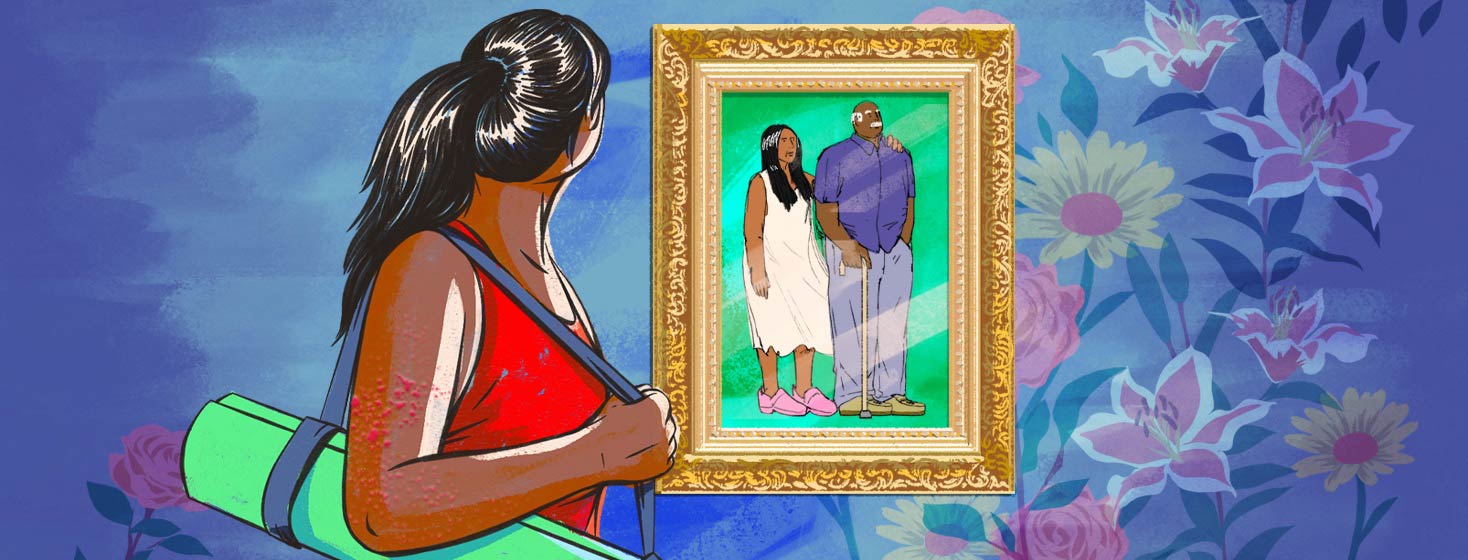Being a Caregiver for Someone with Prostate Cancer While Managing My Own Chronic Illness
Caring for a loved one with prostate cancer can be a challenging experience. It becomes even more complicated when you are also managing your own chronic illness.
I have psoriasis, psoriatic arthritis, fibromyalgia, type 2 diabetes, and high blood pressure. As a caregiver, I found myself struggling to balance my responsibilities. There were things such as managing doctor appointments and providing emotional support for my father. Taking care of my own health needs at the same time was equally important.
Featured Forum
View all responsesFeeling overwhelmed at times
As a caregiver to someone with prostate cancer and other illnesses, I know firsthand the challenges that come with balancing these responsibilities. The emotional and physical toll can be overwhelming at times. There are strategies that can help make the journey a little more manageable.
My father was diagnosed with prostate cancer, throat cancer, and chronic kidney disease a short while after. This was all within a 2 to 3-year period. I was initially overwhelmed with a range of emotions like fear, sadness, shock, disbelief, and anxiety. It was enough managing my own health issues There were times I was worried about how I would be able to care for him, my own health needs, and a full-time job.
I soon realized that caregiving can be emotionally and physically draining. It's important to find ways to manage the stress and anxiety that comes with it.
Taking care of both myself and my father
One of the most important things I learned was to communicate openly with my father about my own health needs. It was challenging to take care of him and myself also. We worked together to find a routine that worked for both of us. We also made sure to stay in contact with our healthcare providers, asking questions and sharing concerns about our health.
I also found that taking care of myself was crucial to managing the stress and anxiety that comes with caregiving. To make sure to prioritize my own self-care. This included getting enough sleep, exercising regularly, and eating a healthy diet. It was crucial to seek support from family and friends, and I joined a support group. Working with a therapist was important for me to manage my feelings of fear and anxiety.
Also, an important aspect of caregiving for someone with prostate cancer while managing my own sickness was learning to ask for help when I needed it. This was difficult at first for me. I didn't want to burden others with my own challenges. I soon realized that accepting help was not a sign of weakness, but rather a necessary part of self-care.
No regrets
One more helpful strategy for me was to focus on the present moment and find joy in small things. This could be anything from taking a walk outside to enjoying a cup of tea. We both like spending time with loved ones. It was essential to find ways to stay positive and maintain a sense of hope, even during challenging times.
Caring for a loved one who needs your help constantly can undoubtedly be a challenging experience. However, by staying connected to my father and others, taking care of myself, and finding joy in everyday moments, I was able to manage the stress and anxiety that come with caregiving. But also provide the support he needed during his treatments.
I retired a couple of years sooner than I wanted to. I've been his caregiver for almost two decades now. I have no regrets about any decisions that I have made on his behalf. He is 90 years old now, and if I had to do this all over again, I happily would.

Join the conversation